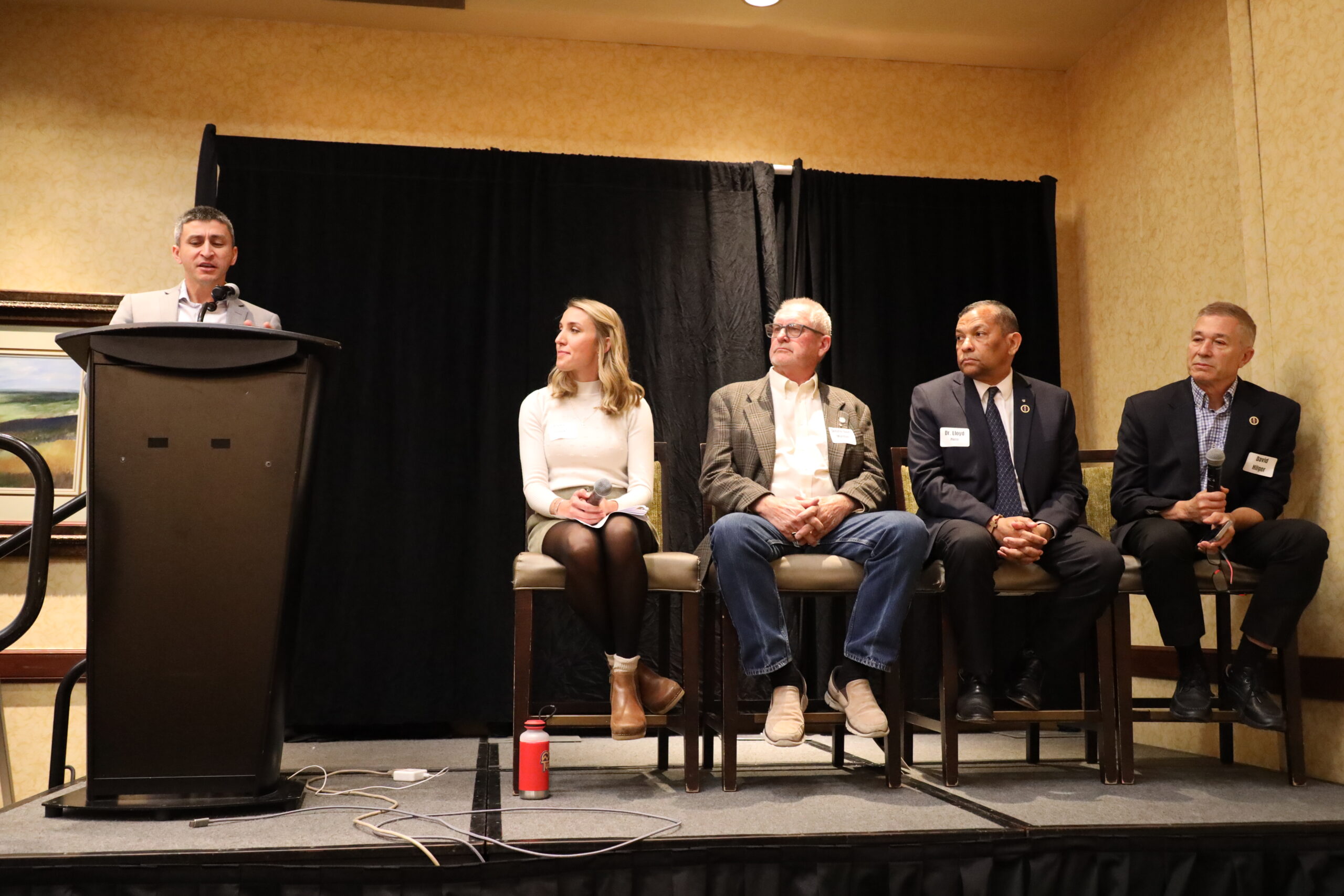
Tom Venzor, left, executive director of the Nebraska Catholic Conference, moderates a recent panel discussion on medical conscience rights. Seated from left on the panel are medical student Lauren Gavia, State Sen. Dave Murman, Dr. Lloyd Pierre and Dr. David Hilger. SUSAN SZALEWSKI/STAFF
News
From personal experience, medical providers know conscience protections are needed
October 19, 2023
Lauren Gavia, a fourth-year medical student, was proud to be president of her college Students for Life club.
But she decided to keep that role off her application to medical schools because she suspected that some would hold it against her.
Even after being admitted at a Catholic university, some medical school classmates have been hostile toward her Catholic values, Gavia said. They’ve made comments like “If you’re not willing to perform an abortion or refer for one, you have no place in medicine.”
“And these things are just casually tossed out there very frequently,” she said, “and they’re met by affirmations from others and then just deafening silence from the faculty when it’s overheard.”
“So hearing things like that frequently can make you feel pretty oppressed and alone,” the medical student said, “which is why … I’m lucky to have found wonderful mentors and other students who share my philosophy.”

Medical student Lauren Gavia
Experiencing hostility and discrimination because of one’s faith and ethics is all too common in the field of medicine, especially in an increasingly polarized culture, according to two doctors and a state legislator who joined Gavia on a panel to discuss conscience protections for medical providers.
The discussion, “Protecting Hippocratic Medicine Through Medical Conscience Rights,” was part of the Bishops’ Pro-Life Banquet & Conference on Oct. 6-7 in Lincoln.
Medical conscience protections have become a priority for the Nebraska Catholic Conference (NCC), which organized the annual gathering. The NCC represents Nebraska’s three bishops and Catholics across the state.
The protections also are a priority for State Sen. Sen. Dave Murman, of Glenvil, near Hastings. Ever since Murman became a state senator in 2019, he’s introduced bills supporting medical conscience rights and has elevated the measures as personal priority bills.
As in previous years, the senator expects a fight in the upcoming legislative session.
Murman said getting LB810 – the Medical Ethics and Diversity Act, also known as the MED Act – past the Health and Human Services Committee will be difficult.
“If we could get it out of the committee,” the senator said, “I think we have a good chance of getting it passed on the floor.”
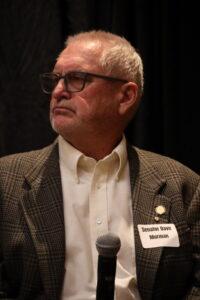
State Sen. Dave Murman
MORE MEDICAL FIELDS AFFECTED
Increasingly, medical professionals are being pressured to go against their consciences, the panelists said.
“The medical conscience issues aren’t just the beginning of life, end of life thing,” said Tom Venzor, executive director of the NCC and moderator of the panel discussion. “They are pervasive, and the issues are coming all throughout medicine and they’re touching every aspect, whether it’s radiology, endocrinology, pediatrics, whether it’s mental health, you name it.”
The Christian Medical and Dental Association has done research on providers who are people of faith.
“And these providers, nine out of 10 of them say if they had to violate their conscience they would leave the medical field,” Venzor said. “Imagine that, nine out of 10. Now that’s beautiful, right? Because that tells us they have a great conviction, they’re not going to violate their conscience.”
But that’s not something people should want, he said.
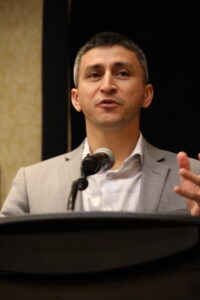
Tom Venzor, executive director of the Nebraska Catholic Conference
“We want to make sure that those people who are absolutely competent and should be in the profession are able to practice and that they don’t have to hang their religious views on the coat hanger as they walk into their practice.”
“We need to make sure we’re protecting them.”
Over the past 40 years “the culture has changed, medicine has changed,” said Dr. David Hilger, a panel member who is a diagnostic radiologist in Omaha and state director of the Catholic Medical Association.
“There used to be a lot of collegiality in medicine between doctors,” Hilger said. “But I think that as the culture has become divided, so has the community of medicine become divided.”
Even at a Catholic medical office, problems can arise, said Dr. Lloyd Pierre, a founder of Sancta Familia Medical Apostolate in Omaha.
He said he faces issues when a patient expects a treatment that would violate Catholic teaching or expects to be referred to someone else for that treatment.
PATIENT DEMANDS
Referrals can be especially problematic for Catholic healthcare providers, Hilger said.
“So as a Catholic physician, not only you cannot as a Catholic participate in abortion, but you cannot refer for an abortion,” he said. “That’s a direct involvement in that service. And that’s where the rubber meets the road, so to speak.”
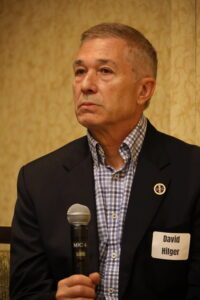
Dr. David Hilger, state director of the Catholic Medical Association
Medical professionals can be treated like vending machines, “where you basically get to demand” services, Venzor said.
Hilger had another name for the vending-machine mentality.
“We’re seeing the rise of what’s called radical patient autonomy,” the physician said. “It is what I want, not always what I need. A patient will come in and say ‘I want this.’ It could be a particular test or it could be ‘I know you won’t do this, but I want you to refer me to somebody.’”
When patients sign in at Sancta Familia, they sign a document that explains what the clinic is about. Reminding patients about what they signed, Pierre said, can become an opportunity.
“You have to really understand your patient and know what they’re all about,” he said. “So you can give them an answer that can actually be a teaching moment.”
He said he would never do anything for a patient that would be “basically aiding and abetting and helping him do something that would compromise his salvation.”
Conscience protections would allow doctors like him to speak fully and truthfully to his patients, Pierre said, without worrying about someone trying to “cancel” him.
“So I fully inform them of everything that’s possible, and I let them make the final decision, but at least I can tell them everything. There’s nothing left off the table.”
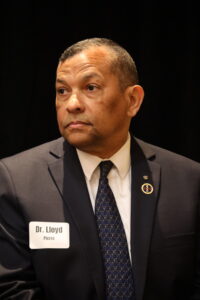
Dr. Lloyd Pierre of Sancta Familia Medical Apostolate in Omaha
“Patients want to know, and they deserve, the truth,” Pierre said. A mother might want to know, for example, if fetal tissue was used to make a vaccine. The doctor might answer no, it wasn’t, but fetal tissue was used in the vaccine’s development. “Is that something that’s going to bother you?” Pierre might ask.
“At least I can tell her everything and she can make an educated decision,” he said. “Now she has all the information, and she can decide if she wants to use that vaccination for her child, and I’m not going to get in trouble for having told her that.”
PROVIDER RIGHTS PROTECT PATIENTS
In discussing legislation on conscience protections, Hilger said, opponents often frame the discussion by saying “we’re protecting the physician. What about protecting the patient?”
“We need to reframe that,” he said, and say “patients really deserve a physician who reflects their own values” and can freely provide information that would influence their consent to treatment.
A patient might want to know, for example, that the contraception they seek could actually cause an abortion.
“So I think those rights of physicians are really protecting the rights of patients,” Hilger said.
“There’s a healthcare shortage – well all over the country actually – but especially in Nebraska and especially in rural areas,” Murman said. “So we need to allow or even encourage healthcare professionals who have the best care of their prospective patients at heart” and who may fear discrimination or be prevented from practicing in the state.
“Because if that happens,” he said, “we’re only making it more difficult to have more healthcare providers.”
Some doctors want to retire early rather than have to deal with ideologies they don’t agree with, Murman said. “So all of this contributes to the shortage of healthcare professionals and facilities and payers.”
Even in fields like radiology, practitioners face moral issues.
“I have a friend , a Mayo Clinic neuroradiologist,” Hilger said, “and he refused to do CAT scans of facial bones because it was for planning reconstructive surgery for a transgender. So it’s facing everybody.”
Murman said he’s heard of an OB-GYN resident in Texas who was having second thoughts about that field because he was expected to do hysterectomies as part of transgender changes.
Gavia said that pro-life medical students are especially pressured and ostracized in obstetrics and gynecology wards.
“I’ve had several friends who were really passionate and interested in pursuing OB-GYN who have now decided against it because they say they feel like they can’t practice in this culture.”
“To me,” Venzor said, “that’s crazy to think that you have maybe some of the cream of the crop, who would be the best OB-GYNs, and here they are, they’re not going to go into that practice area because of the discrimination or the pressures that they’re feeling.”
PUSHBACK
Large medical organizations and medical boards can drown out minority voices and sway what is recognized as best standards of care and licensing requirements, Hilger said. “So we need to sustain those smaller organizations in that minority opinion.”
An “undercurrent of pushback,” of people who can’t be discriminated against, is necessary for “following the science or following common sense,” Venzor said.
“In my stage of career,” Hilger said, “my biggest concern is for the younger professional coming up and that they have the ability to practice medicine the same that I’ve been able to practice medicine through the years.”
As Gavia looks ahead at residency and possibly becoming a pediatrician, she has concerns.
“I think especially with the transgender agenda on the horizon and being pushed so fervently, that’s something that makes me scared as someone interested in going into pediatrics,” she said. “Am I going to be pressured to prescribe puberty blockers or hormones?
“I am still in a power differential because I am the lowest on the totem pole as a student,” Gavia said. “In residency I’ll kind of slowly be working my way up, but I’ll still be beholden to providers and my teachers who may adamantly disagree with how I feel about prescribing those things.
“So I think that’s something that’s very much on my mind as I’m applying to residency and interviewing. Is this somewhere that I could be safe to express who I am and not push who I am on others, but be able to practice within my conscience?”
The MED Act would protect any medical provider from being discriminated against because of their right of conscience or religious beliefs, Murman said. That would include protections for doctors, nurses, technicians, students, residents, pharmacies, hospitals and insurance companies.
“None of these medical providers would be forced to provide a service or pay for a service that goes against their deeply held conscience beliefs,” the senator said.
He stressed that the measure would not allow discrimination. “It’s only the service that would be protected,” Murman said. “They can’t discriminate against individuals … because of race or gender identity or anything like that.”
The bill would protect providers from being fired or denied a promotion or pay increase because of their stance.
Hilger and Pierre and other health professionals testified on behalf of the bill last year.
“Members on the committee know their names,” Venzor said. “They know that they’re reputable healthcare professionals.”
Testimony from healthcare providers is crucial, he said. “They’re hearing it from the people on the ground who are there providing care day in and day out and have devoted their life to the cause of people’s health and wellbeing.”
Venzor said he expects questions and opposition on the measure.
“So we have a road ahead of us, but we can get it done.”
READ MORE FROM THE CATHOLIC VOICE